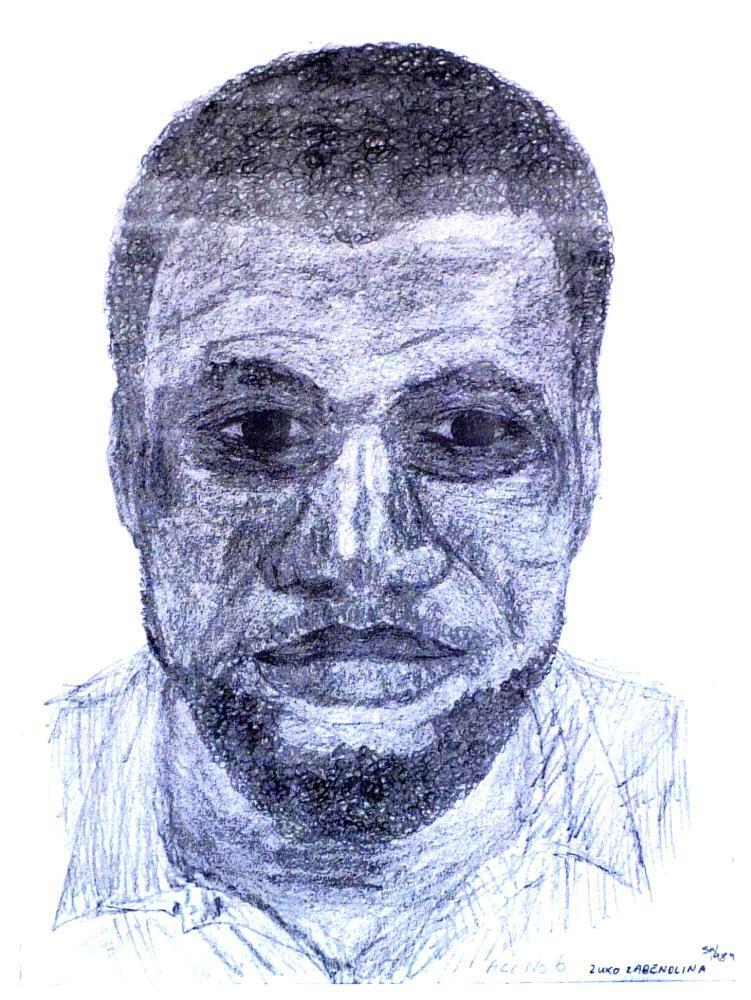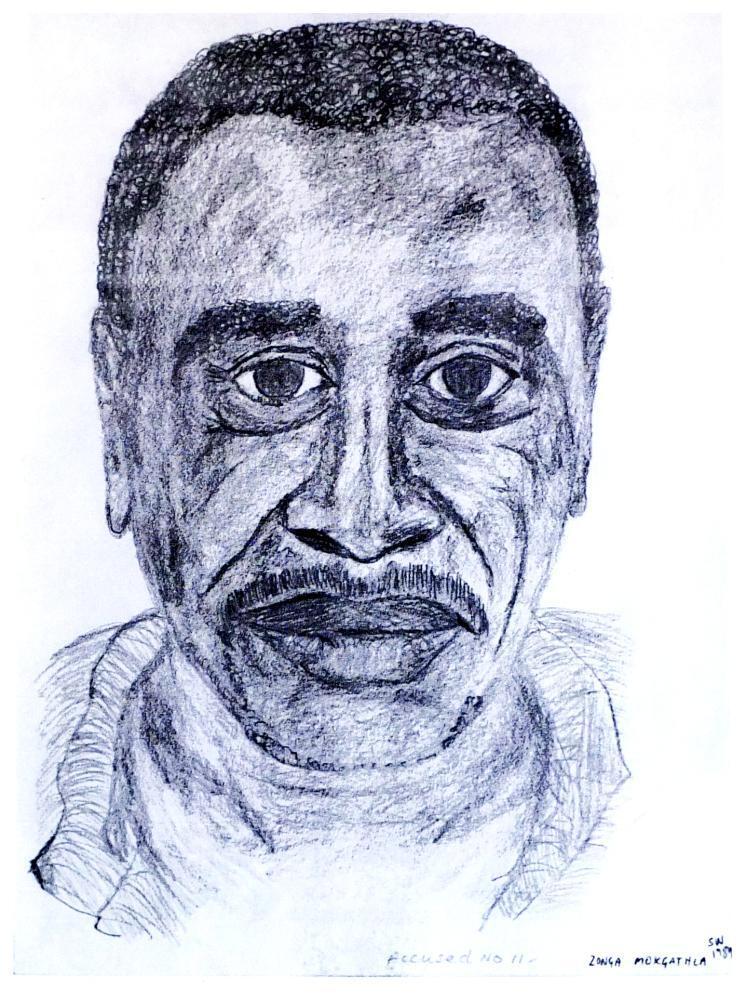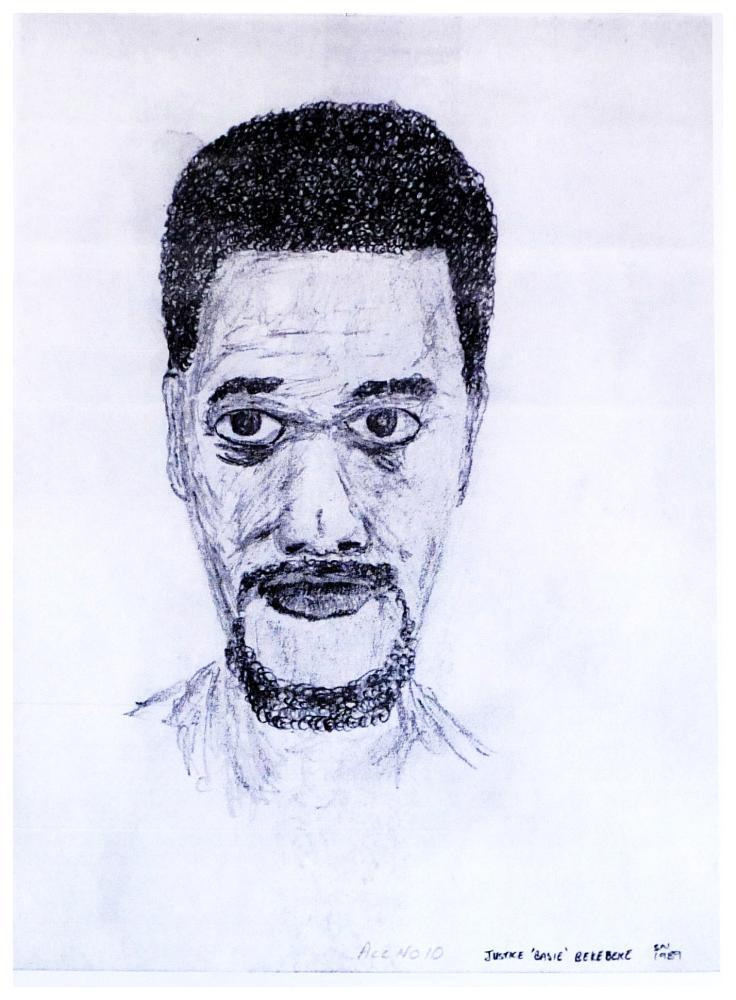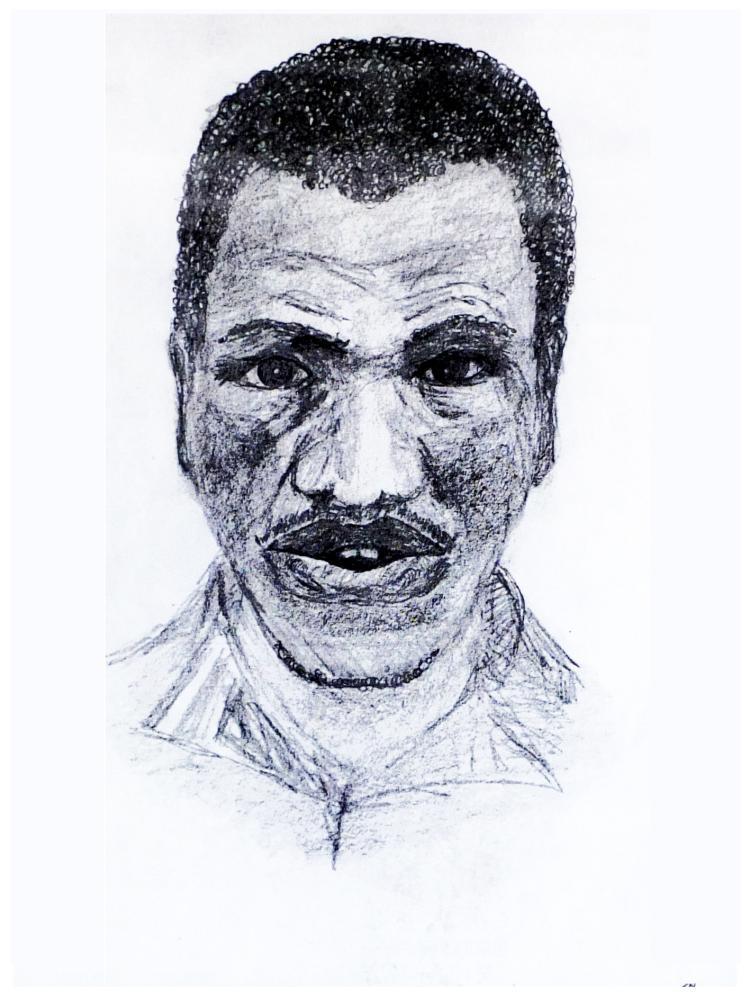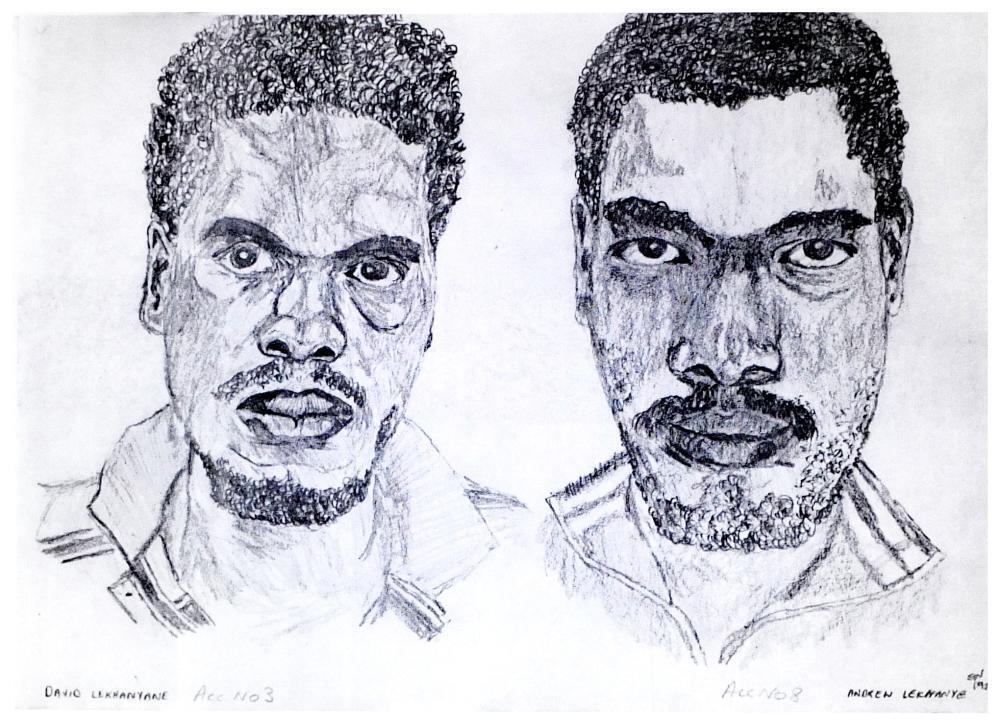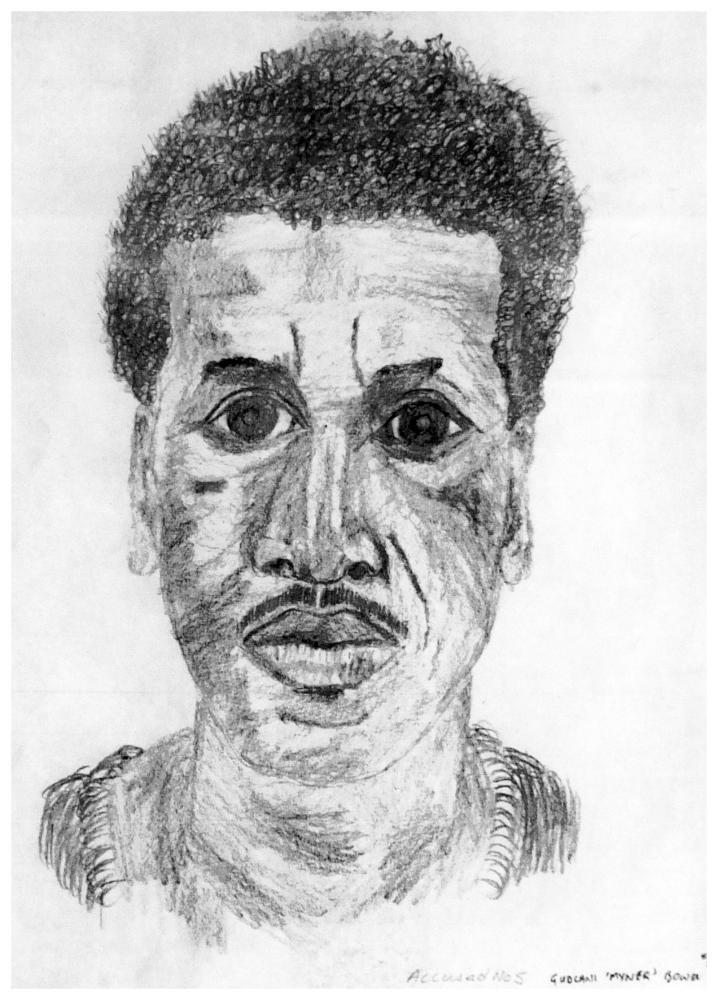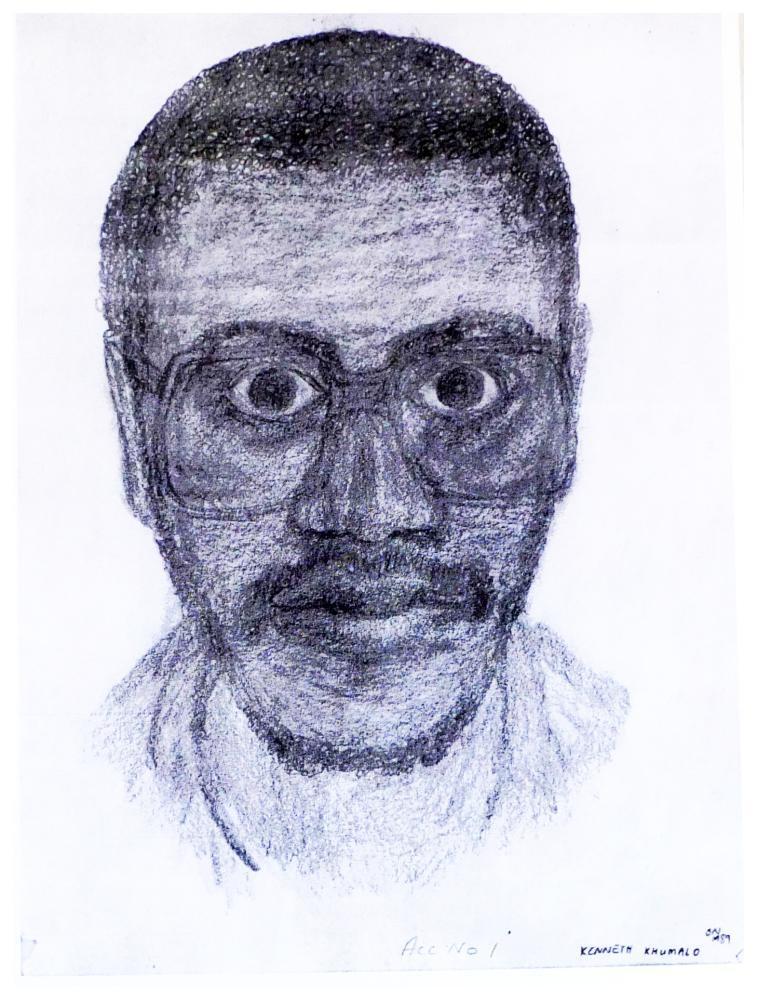Upington 14
| Series information: | 1985–1991, Paballelo, Upington, Northern Cape, South AfricaA series of drawings depicting the Upington 14, anti-apartheid activists who were sentenced to death under the apartheid-era “common purpose” law following the 1985 killing of municipal policeman Lucas “Jetta” Sethwala during a toyi-toyi protest in Paballelo township, Upington (Learn and Teach, 1990; Barron, 2012). The trial arose from widespread unrest in the township after rent increases and long-standing grievances over poverty, unemployment, and forced relocation (Learn and Teach, 1990; AAM Archives Committee, 1989). Of the 25 people initially convicted for Sethwala’s death, 14; known collectively as the Upington 14, were sentenced to death in 1989. Only one individual delivered the fatal blows, yet all were convicted under “common purpose,” a controversial legal principle holding anyone who shared the group’s aim responsible for murder (Learn and Teach, 1990; Ramashamola, 1990; Barron, 2012). The Supreme Court overturned the sentences in 1991, and most convictions were later rescinded (Learn and Teach, 1990; Barron, 2012). The drawings convey the personal histories, struggles, and resilience of these activists. Many came from impoverished families, faced disrupted education due to school boycotts, and were active in youth or student movements such as the Upington Youth Movement and the Paballelo Youth Organisation (Learn and Teach, 1990; Barron, 2012). Their participation in protests, including toyi-toyi demonstrations, exemplifies the collective resistance of Black South Africans against systemic oppression (SABC, 1989). The artist, a member of the Upington 14’s legal team, captures both the humanity of each individual and the broader social context that led to their prosecution. The case also holds historical significance as the first constitutional review of the death penalty heard by South Africa’s Constitutional Court (Learn and Teach, 1990; Barron, 2012). Keywords: Apartheid, toyi-toyi, youth activism, Paballelo, Upington, common purpose, political repression, South African justice system. ReferencesAAM Archives Committee (1989) hgs19. “Save the Upington 14!” poster, Bodleian Library/AAM Archives. Available at: https://www.aamarchives.org/archive/goods/posters/hgs19-save-the-upington-14.html [Accessed 29 October 2025]. Barron, C. (2012) ‘Evelina de Bruin (1933‑2012): member of the “Upington 14”’, Sunday Times, 25 March. Available at: https://www.timeslive.co.za/sunday-times/lifestyle/2012-03-25-evelina-de-bruin-1933-2012-member-of-the-upington-14/ [Accessed 29 October 2025]. Learn and Teach (1990) Save the Upington 14. [Online] Available at: https://www.learnandteach.co.za [Accessed 29 October 2025]. Ramashamola, T. (1990) The Upington Trial: Legal and Moral Considerations, Bloemfontein: Supreme Court Reports. SABC (1989) ‘African National Congress member Justice Bekebeke appears before Amnesty Committee’, SABC Radio News, 15 June. |

